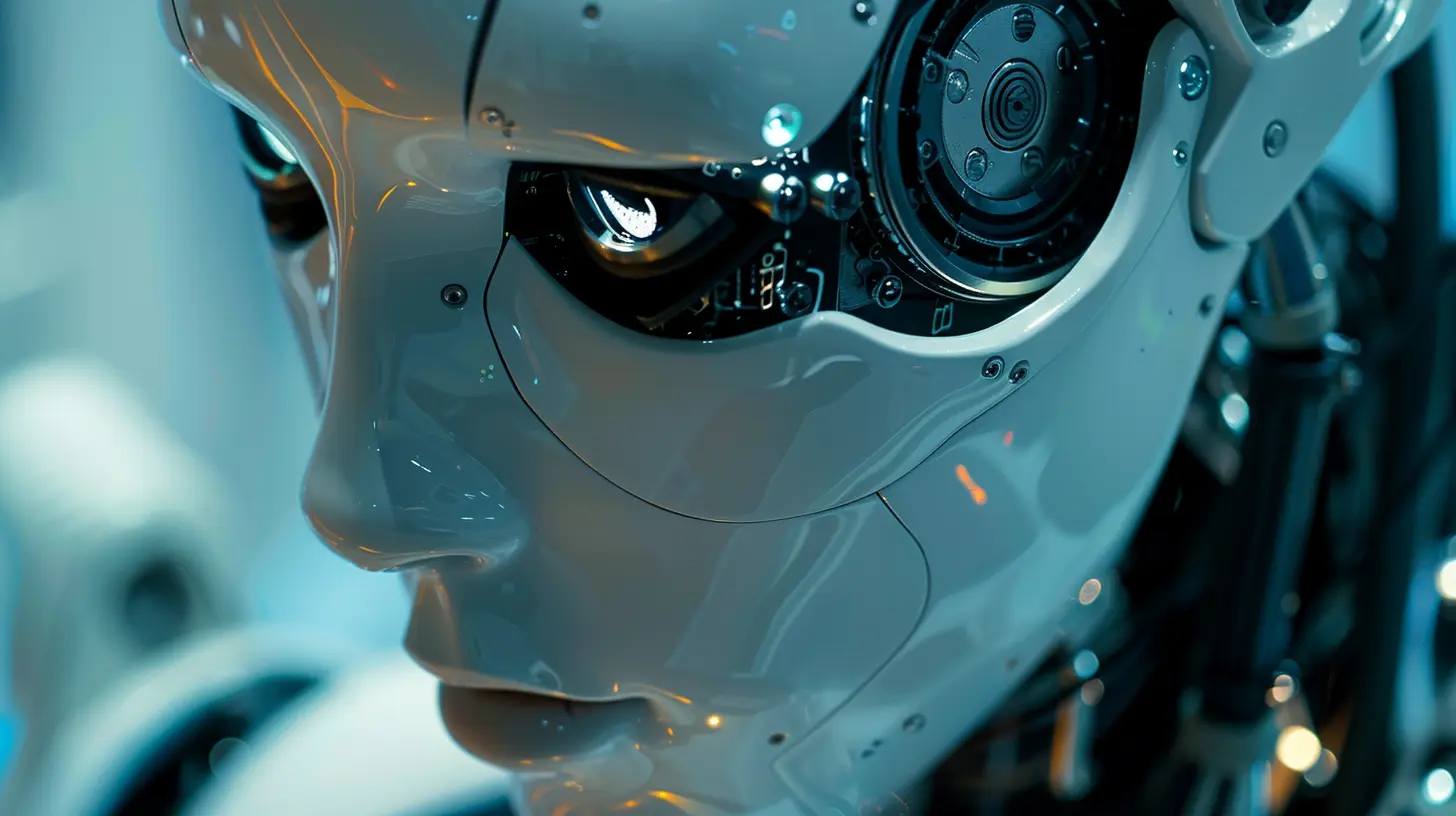AI in Medicine: Ethical Concerns in Machine Diagnoses
16 November 2025
Artificial intelligence (AI) has been making waves across various industries, but perhaps one of the most transformative and, at the same time, concerning areas is its use in medicine. Picture this: a machine scanning your medical records, analyzing your symptoms, and providing a diagnosis faster than any human doctor could. Sounds like something out of a sci-fi movie, right? Well, it’s not—it’s happening now!
AI is already being used in hospitals and clinics around the globe to assist in diagnosing diseases, predicting patient outcomes, and even suggesting treatment plans. But before we all start cheering for this technological leap forward, we need to pump the brakes a bit and ask some serious questions. While AI might offer speed and accuracy, are there ethical concerns lurking behind this shiny facade? You bet there are!
In this article, we’ll unpack the ethical concerns surrounding AI in medical diagnoses. Let’s dive deep into what’s at stake, from data privacy issues to the potential for bias in machine learning algorithms. Buckle up, because this is going to be an eye-opening ride.

The Rise of AI in Medicine
Before we hit the ethical concerns, let’s first get a sense of why AI is being hailed as a game-changer in the medical field. AI has the potential to process massive amounts of data quickly and efficiently. It can analyze medical records, images, and genetic data to make predictions that would be impossible for a single human to do in the same amount of time. Whether it’s identifying tumors in X-rays or predicting the likelihood of a heart attack based on patient history, AI is already proving its worth.But here’s the kicker: AI doesn’t operate on intuition or experience like human doctors do. It works on data—lots and lots of it. This can be a good thing, but it also raises some red flags when it comes to ethics.

Data Privacy: Is Your Information Safe?
One of the first ethical concerns that pops up when we talk about AI in medicine is data privacy. Think about how much personal data is required for AI systems to make accurate diagnoses. We’re talking about sensitive stuff—your medical history, genetic information, lab results, and even your lifestyle habits. For AI to be effective, it needs access to all of this data, which begs the question: How secure is your information?Let’s not sugarcoat it—data breaches happen. Medical data is some of the most valuable information on the black market, and the more data that’s collected, the bigger the target. Once your data is out there, there's no reeling it back in. While hospitals and tech companies may promise top-notch security, the risk of hacking is always present. And let’s face it, we’ve seen even the most secure systems get compromised.
Additionally, there’s the question of consent. Are patients fully aware of how their data is being used? Are they given a choice when it comes to sharing their sensitive information? With AI systems, often the data is anonymized, but there’s still the lingering concern about whether patients truly understand the implications of handing over their medical details to a machine.

Algorithmic Bias: Can AI Be Fair?
Here’s where things get really dicey. AI, at its core, is only as good as the data it’s fed. If the data used to train AI systems is biased, then guess what? The AI will also be biased. This is a major issue in medical diagnoses. Let me explain.Imagine an AI system trained primarily on medical records from white, middle-aged men. When that same system is used to diagnose a disease in a young woman of color, it may not be as accurate. Why? Because the data it was trained on doesn’t reflect the diversity of the real world. This is a huge problem because it means that AI could end up perpetuating healthcare inequalities rather than solving them.
In fact, we’ve already seen cases where AI systems in healthcare have underperformed for certain demographic groups. For instance, research has shown that some AI systems used to diagnose skin cancer are less effective at identifying the disease in people with darker skin tones. This kind of bias can lead to misdiagnoses and, in the worst cases, even death.
The question then becomes: Can we trust AI to be fair? And if not, how do we ensure that these biases are identified and corrected before AI becomes an integral part of healthcare?

Responsibility and Accountability: Who’s to Blame?
Okay, let’s say an AI system makes a mistake—a misdiagnosis or a wrong treatment recommendation. Who’s accountable? Is it the doctor who relied on the AI, the tech company that designed the system, or the AI itself? This is a murky area, and it’s one of the biggest ethical challenges we face with AI in medicine.Right now, human doctors are held accountable for their decisions, and rightly so. But when AI comes into the picture, accountability gets a lot more complicated. If a doctor uses an AI tool and it makes a wrong call, can the doctor be blamed for trusting the machine? Or should the creators of the AI system be held responsible for any errors?
This gray area can create a dangerous situation where responsibility is offloaded onto the technology, leaving patients in a precarious position. Until we establish clear guidelines for accountability, the widespread adoption of AI in medicine could lead to a legal and ethical minefield.
The Human Element: Can AI Replace Doctors?
One of the most significant concerns about AI in medicine is the potential for it to replace human doctors. Now, while AI is incredibly powerful, it lacks one crucial thing: empathy. Doctors aren’t just diagnosticians—they’re caregivers. They listen to patients, provide comfort, and make judgment calls based on a combination of medical knowledge and human intuition.AI, on the other hand, is cold and calculating. It’s great at crunching numbers and analyzing data but terrible at understanding the emotional and psychological aspects of patient care. Can you imagine getting a cancer diagnosis from a machine? No matter how accurate the diagnosis might be, it’s hard to imagine that AI could ever provide the kind of emotional support a human doctor can offer.
This brings up a larger question: Should we even want AI to replace human doctors? While AI can assist doctors and help them make more informed decisions, there’s something fundamentally human about medicine that can’t (and shouldn’t) be replaced by machines.
Transparency: Do You Know How AI Works?
Another ethical concern is the lack of transparency in how AI systems make their decisions. AI, especially machine learning models, often operate as “black boxes.” This means that even the engineers who create these systems can’t always explain how they arrive at a particular diagnosis or recommendation.If a doctor can’t explain why an AI system suggested a particular treatment, how can patients trust it? Medical decisions are too important to leave in the hands of a system that can’t explain itself. Patients have a right to understand how their diagnoses are being made, and if AI is going to play a bigger role in medicine, transparency will need to be a top priority.
Informed Consent: Are Patients Aware?
Informed consent is a cornerstone of ethical medical practice. Patients need to know what’s being done to them and why. However, when AI is involved, it’s not always clear whether patients are fully informed about how the technology is being used in their diagnosis or treatment.For instance, if an AI system is being used to analyze a patient’s medical data, do they fully understand how the AI works? Are they given the option to opt-out? These are important questions that need to be addressed. Without informed consent, the use of AI in medicine could lead to situations where patients feel like they’re being experimented on without their knowledge or permission.
Balancing Innovation and Ethics: Where Do We Go From Here?
AI has the power to revolutionize medicine, but we can’t ignore the ethical concerns that come with it. From data privacy to algorithmic bias, accountability to transparency, there are real risks that need to be carefully managed.So, where do we go from here? The key is to strike a balance between innovation and ethics. AI should be seen as a tool to assist doctors, not replace them. We need to ensure that AI is trained on diverse data sets to minimize bias, and we need to create clear guidelines for accountability in case something goes wrong.
Most importantly, we need to put patients at the center of this conversation. After all, AI in medicine isn’t just about technology—it’s about people. And when it comes to people's health and well-being, we should demand nothing less than the highest ethical standards.
Conclusion: The Future of AI in Medicine
AI has the potential to do incredible things in the medical field, but it’s not without its challenges. While we can’t deny the benefits of faster and more accurate diagnoses, we also can’t overlook the ethical concerns that come with it. As AI continues to evolve, so too must our understanding of how to use it responsibly and ethically in medicine.As patients, doctors, and technologists, we all have a role to play in ensuring that AI is used in ways that benefit everyone—not just a select few. It’s an exciting time for medicine, but it’s also a time for caution. Because at the end of the day, no matter how advanced technology becomes, the ultimate goal should always be to improve human lives.
all images in this post were generated using AI tools
Category:
Ai EthicsAuthor:

Ugo Coleman
Discussion
rate this article
1 comments
Fenris Taylor
Embracing AI in medicine can revolutionize patient care, but ethical considerations are crucial. By prioritizing transparency and compassion, we can harness technology's potential while ensuring trust and safety in healthcare.
November 16, 2025 at 1:22 PM

Ugo Coleman
Thank you for your insightful comment! I completely agree that balancing innovation with ethical considerations is vital for the future of AI in medicine. Prioritizing transparency and compassion will indeed help build trust and improve patient care.


